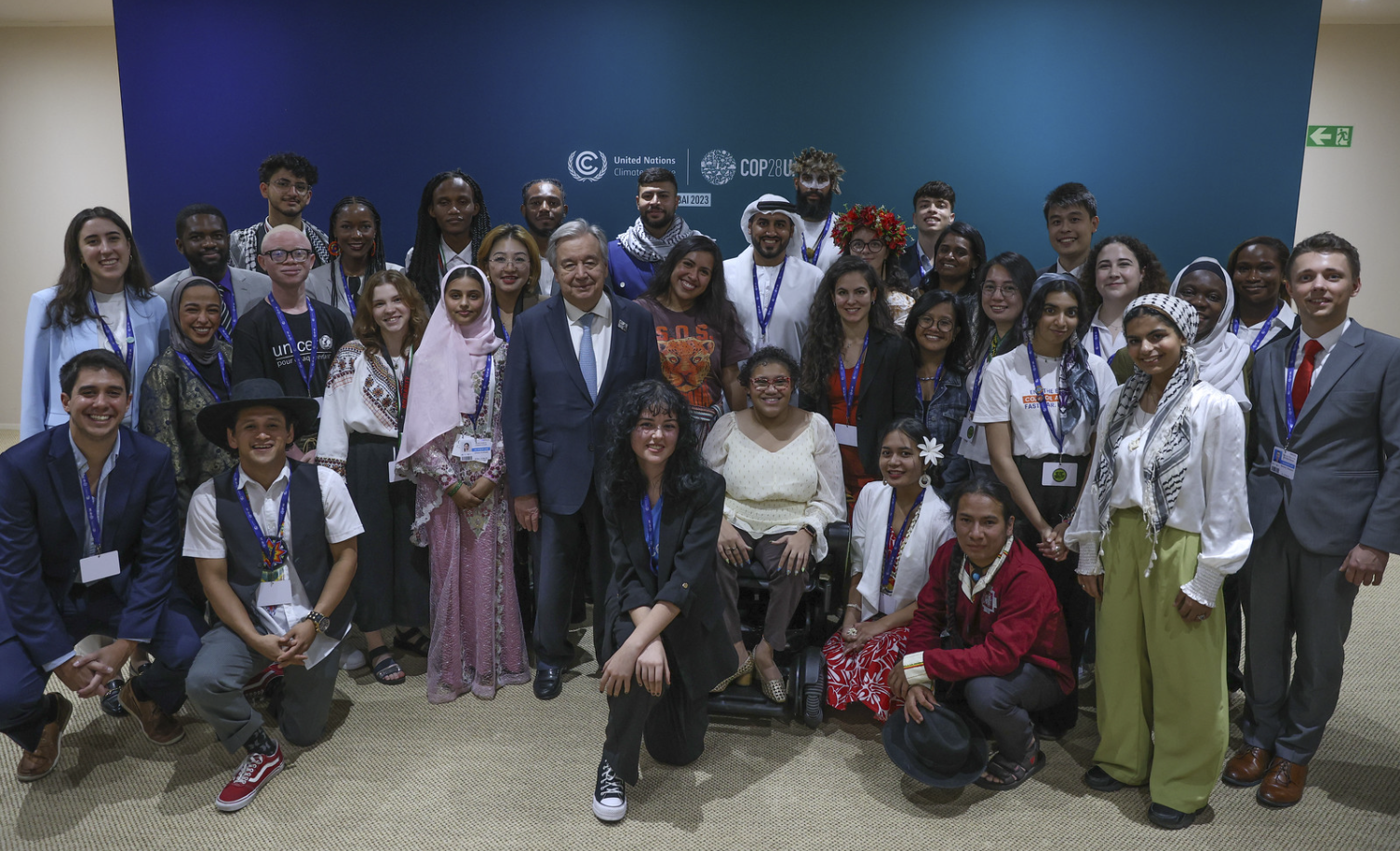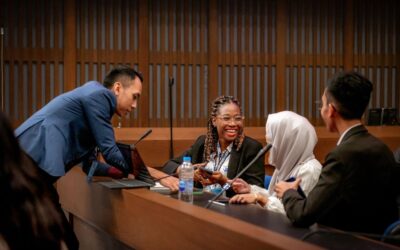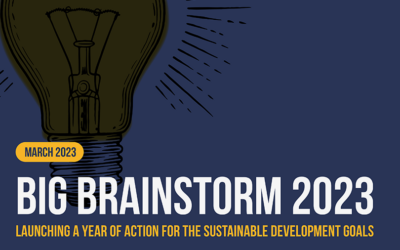Co-authors: Butti Almheiri, Jacob Ellis, Alice Mukashyaka, Inés Yábar, Saru Duckworth
There were claps in the room when the COP28 end was gavelled. There were also silent faces and tears. A sense of disjointed applause and tearful distress combined in a moment in time. Some have called this COP historic; others say it’s the bare minimum. As young people, we are often depicted as a monolith, yet our views, experiences and perspectives are rich in their diversity . Today, as Next Generation Fellows from communities all around the globe, we intend to share a bit about the nuances of COP28, through our eyes.
“Attending COP28 in Dubai as a youth was not just an opportunity, but a profound exposure to global diplomacy and solidarity amidst pressing geopolitical issues. As the world confronts challenges in the Middle East, Europe, Latin America, and within the complexities of a multipolar landscape, witnessing nearly 200 parties come together under the “UAE Consensus” was a deeply inspiring testament to international unity. This consensus, which notably included an unprecedented reference to transitioning away from all fossil fuels in energy systems for the first time in COP history, operationalizing loss and damage, establishing a Youth Climate Champion role, and agreeing on the Global Goal on Adaptation (GGA), signified a revived commitment to the climate battle ignited by the Paris Agreement. Now, more than ever, the urgency for action is palpable. This renewed momentum underscores the fact that the promises and commitments we have heard need to be translated into tangible action – because it’s action that drives real change.”
Butti Almheiri, UN Foundation Next Generation Fellow, Climate, UAE
There was an agreement – At one point, many worried there would be none, as some countries threatened to boycott any decision. But what does this agreement mean? At the end of COP, the agreement summarizes months of conversations and weeks of intense negotiations into a text all members of the UN have to agree to. Historic documents include the Paris Agreement which set forth the goal to hold “the increase in the global average temperature to well below 2°C above pre-industrial levels” and pursue efforts “to limit the temperature increase to 1.5°C above pre-industrial levels.”
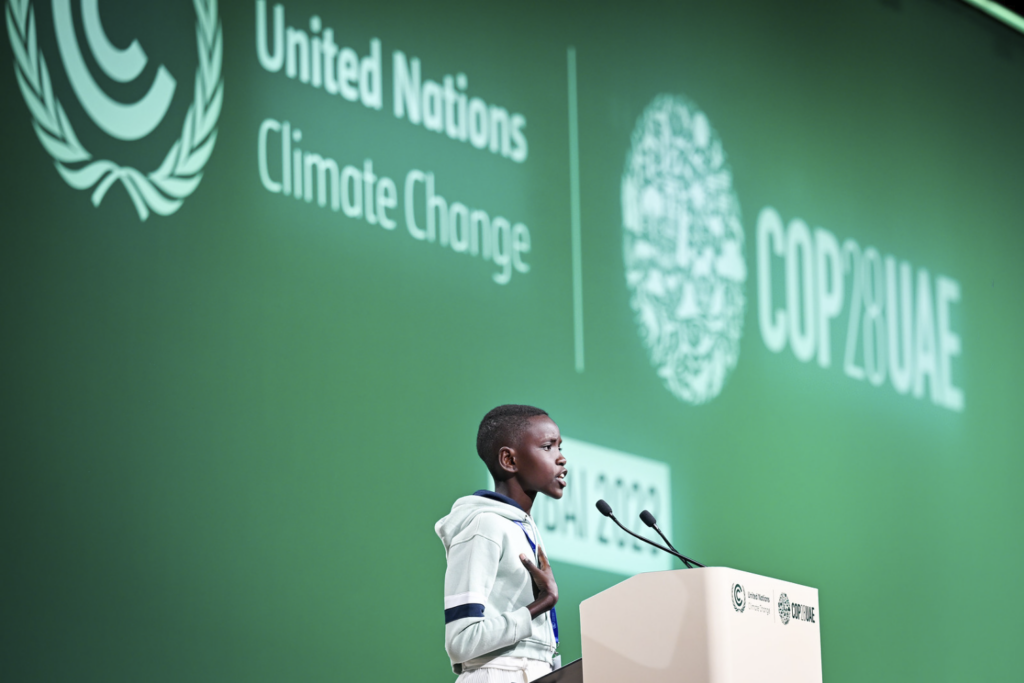
Now, let’s revisit the question, can we call this year’s COP outcome truly historic? For the first time, countries agreed on the need to “transition away from fossil fuels in energy systems”. We would have thought this was a no-brainer, but as UN Climate Change Executive Secretary Simon Stiell said in his closing speech, “whilst we didn’t turn the page on the fossil fuel era in Dubai, this outcome is the beginning of the end.”
There were ends but also beginnings. The COP started with countries finally pledging money to the Loss and Damage Fund. This could be labeled as historic for developing countries, which will now have a mechanism to fund reparations for damage caused by climate change. However, despite this being a celebrated achievement, the math does not add up. $700 million was pledged on the first day at COP. Sounds like a lot right? Yet this only covers less than 0.2% of what is needed. If the pledges fall short, will the actions fall even shorter?
“We were promised more and we deserved more. COP28 was our opportunity, despite global conflicts and economic instabilities, to show unity and global solidarity. COP28 fell short of that ambition. I welcomed the early announcements in relation to loss and damage but the subsequent days revealed a lack of sustained momentum. Let COP28 be a wake-up call, propelling us to exceed expectations and demonstrate the transformative change the world needs – from cities and governments. The time for ambitious climate action is now; we owe it to ourselves and the generations yet to come.”
Jacob Ellis, UN Foundation Next Generation Fellow, Future Generations, Wales
As young people, this is particularly concerning as two out of three young people live in countries highly susceptible to ecological damage within their lifetime, so we cannot afford to fall short; our lives and those of our peers depend on it. And we are not just asking our leaders to act; we are already taking action. An impressive 70% of young people worldwide are actively involved in social and political causes, and we saw many of them during COP, advocating, rallying, speaking, influencing, working both behind the scenes and in the limelight.
“Acting on climate change is not just a matter of policy, it’s a collective responsibility to safeguard the future of our planet and our actions today echo the sustainability of tomorrow. I followed COP28 virtually and it was great see it as a big moment to reflect and hold ourselves accountable.’’
Alice Mukashyaka, UN Foundation Next Generation Fellow, Education, Rwanda
As Ayisha Siddiqa, member of the Youth Advisory Group on Climate Change to the Secretary-General, put it, “The limited language we have of fossil fuel phaseout in the Global Stocktake is a result of civil society, small island states, and in particular my heroes and colleagues in the global youth movement.”
So yes, we can celebrate the fact that some steps were made. The youth climate champion role was institutionalized, the Global Goal on Adaptation was adopted, and fossil fuels are finally a part of the final text. We can also be frustrated. Small islands and developing states were not even in the room when the decision was gavelled. Their closing statement, which started by stating, “We did not want to interrupt you, but we are a little confused about what just happened. It seems that you gavelled the decisions, and the small island developing states were not in the room.” ended acknowledging the need to act for future generations “We must leave here with a set of decisions that meet the magnitude of the climate crisis, that meet the expectations that the world has of us, and that meet what is needed to secure the future of the coming generations.”
We can be excited or we can be disheartened after a COP, often it’s a mix of emotions. These two feelings can be hard to hold at once as it is a conflicting mix of emotions. But we can all, with whatever emotion prevails, decide to take action. With almost 4 billion young people, we, the youth of today, represent half of the world’s population, making the next generation the largest in history. That force is one we can use for good.
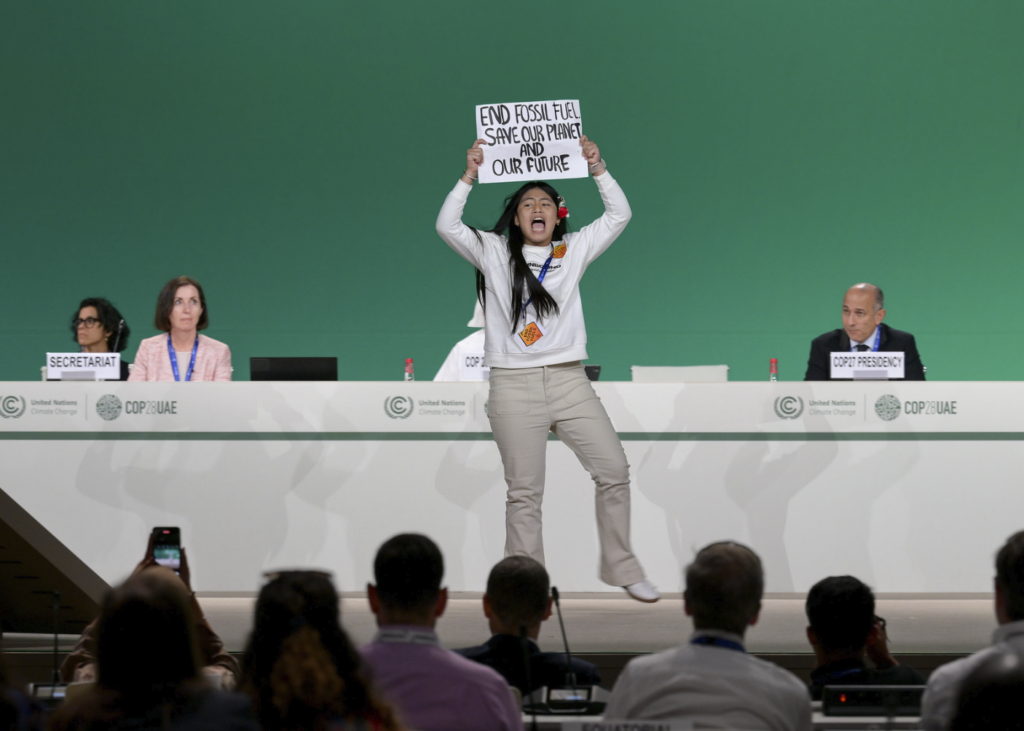
“Moments like COP remind me that true community and work is happening beyond big venues: back home. My hopes are not in the commitments but in the global community that made the text more ambitious than it initially was and now continues the work beyond paper to work for people’s lives.”
Inés Yábar, UN Foundation Next Generation Fellow, Lead, Peru
The Loss and Damage fund was agreed, but we know only 0.76% of climate grants from the largest climate foundations go to youth-led climate justice initiatives. This is why, as Next Generation Fellows, we are involved in the Unlock the Future Coalition’s work to launch a funders collective which will help boost funding for the young people who will shape our tomorrow.
The stories of those most affected by climate change may have been overlooked by broad statements and sensationalist media, but we are working to amplify those stories and provide openand creative platforms that depict potential future scenarios and empower young people to influence this evolving narrative through the Road to 2100.
“COP was the culmination of youth organizing and activism, not just this year but for decades. It was inspiring to see the distinct national aspirations and priorities of young people all over the world coming together in Local Conferences of Youth to give their recommendations ahead of COP. What struck me most is how many of these priorities are shared across our generation, and how we can unite to make them heard.”
Saru Duckworth, UN Foundation Next Generation Fellow, Jobs, Nepal / USA
We know the actions that young people led at COP are just the tip of the iceberg, many of us were not there. So, let’s continue to take action. We look forward to continuing to mobilize through the Engine Room in 2024 and taking action throughout the year, in big moments and, most importantly beyond: in our communities, our global virtual connections, and where it matters most to us and future generations. Whether you are excited or disheartened by what happened this year at COP, will you join us?
